- News
LaterMost ReadDistinctiveRohingya News Agency: Myanmar: Tens of thousands of Rohingya people - who remain deprived of a nationality - displaced by “clearance operations” amid reports of unlawful killings, indiscriminate firing on civilians, ...
- Issues
Most ReadDistinctive
- Books
- Documents
LaterMost Read
- Figures
- Entries
Most ReadDistinctiveShwe Maung, Former Myanmar MP November 15, 2016 Myanmar Security Forces are enjoying to kill Rohingyas including children, rape women and torching and destruction Rohingya houses and villages after the " October ...
- Arakan
Myanmar sends troops into Muslim-majority region after deadly attacks
Tuesday | 11/10/2016 - 12:29 PM
Rohingya News Agency - Reuters
Myanmar has stepped up security in a Muslim-majority region near its border with Bangladesh, officials said on Monday (Oct 10), as authorities hunt for attackers who killed at least nine police officers.
Officials believe that members of the Muslim Rohingya ethnic minority launched three separate attacks in the early hours of Sunday, in which dozens of weapons and more than 10,000 rounds of ammunition were seized from border police.
Nine policemen were killed, one was missing and five were wounded. Eight attackers were killed and two captured, police said.
The Rohingya, who are mostly stateless and are subject to severe restrictions on their movements, make up the majority of the population in the northern part of Rakhine State.
Authorities in the township of Maungdaw on Sunday announced the extension of an existing order banning gatherings of five or more people and imposing a 7pm to 6am curfew.
State media said the military - known as the Tatmadaw - had moved troops into the area by helicopter. Photographs on social media showed trucks full of infantry purportedly being deployed in the area.
No detailed information has been released about the operation in the area near a border guard office at Kyiganbyin village, where as many as 90 assailants seized weapons and fled into the hills.
"The Tatmadaw, the police force and the Ministry of Border Affairs are working together to ensure security and restore law and order,” said Min Aung, a minister in the Rakhine State government, who declined to disclose the size of the force sent to the area.
Human rights advocates raised concerns that civilians may be caught up in the sweep. Unverified reports posted online by advocates for the Rohingya suggested that a violent crackdown may be underway.
Ye Htut, administrator for Maungdaw, said he was not aware of the situation around Kyiganbyin village, which is under the control of security forces.
Muslim residents of Maungdaw town closed their shops amid the heightened security presence, he said.
“All of the security forces are deployed in Maungdaw, so we are not worried about security. Everything is fine,” Ye Htut said.
BANGLADESH DEPLOYS BORDER GUARDS
Matthew Smith, founder of campaign group Fortify Rights, said restrictions on the Muslim population already in place made northern Rakhine State "a police state, an apartheid state".
"Human rights violations in the context of counterinsurgency in northern Rakhine State are not new," Smith said.
"The authorities routinely accuse average Rohingya of involvement with armed extremists."
Authorities routinely dismiss accusations of rights abuses.
Sunday was the bloodiest day in the state since 2012, when more than 100 people were killed in clashes between Rohingya and ethnic Rakhine Buddhists. Some 125,000 people, the majority Rohingya, remain displaced.
Myanmar's state counsellor and foreign minister Aung San Suu Kyi - who in August appointed former U.N. chief Kofi Annan to head an advisory commission into the situation in Rakhine State - discussed the attacks with security officials in an emergency meeting on Sunday, said foreign ministry official Kyaw Tin.
"The state counsellor instructed us to handle this issue cautiously in accordance with the law," Kyaw Tin told reporters.
Officials in Bangladesh said Myanmar had closed the border after the attacks.
Bangladesh deployed additional border guards, said Mohammad Tanvir Alam Khan, a Border Guard Bangladesh commander.
Myanmar police chief Zaw Win has said his force was investigating possible links between the attackers and rebel groups.
Zaw Win also mentioned big drugs busts by police in the area - some 6 million methamphetamine pills were seized in September - as a possible trigger for the attacks.
التعليـــقات
Comments published does not reflect the opinion of the agency, but reflect the opinion of their owners

New Agency
Articles
Books
Mailing List
Search























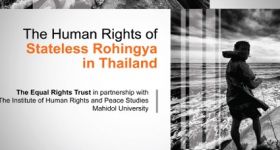








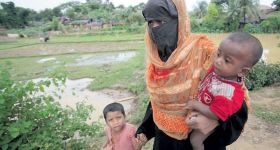










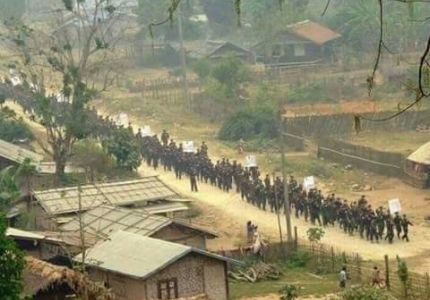

 More to be done before Rohingya return to Myanmar : UN
More to be done before Rohingya return to Myanmar : UN








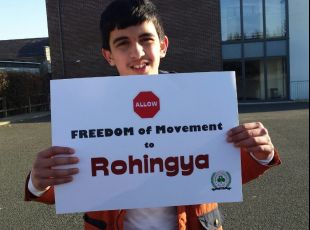

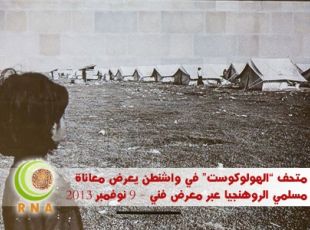





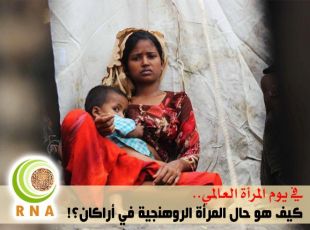


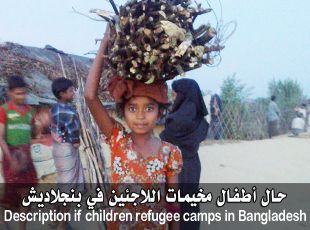














 Report: The Human Rights of Stateless Rohingya in Thailand
Report: The Human Rights of Stateless Rohingya in Thailand

